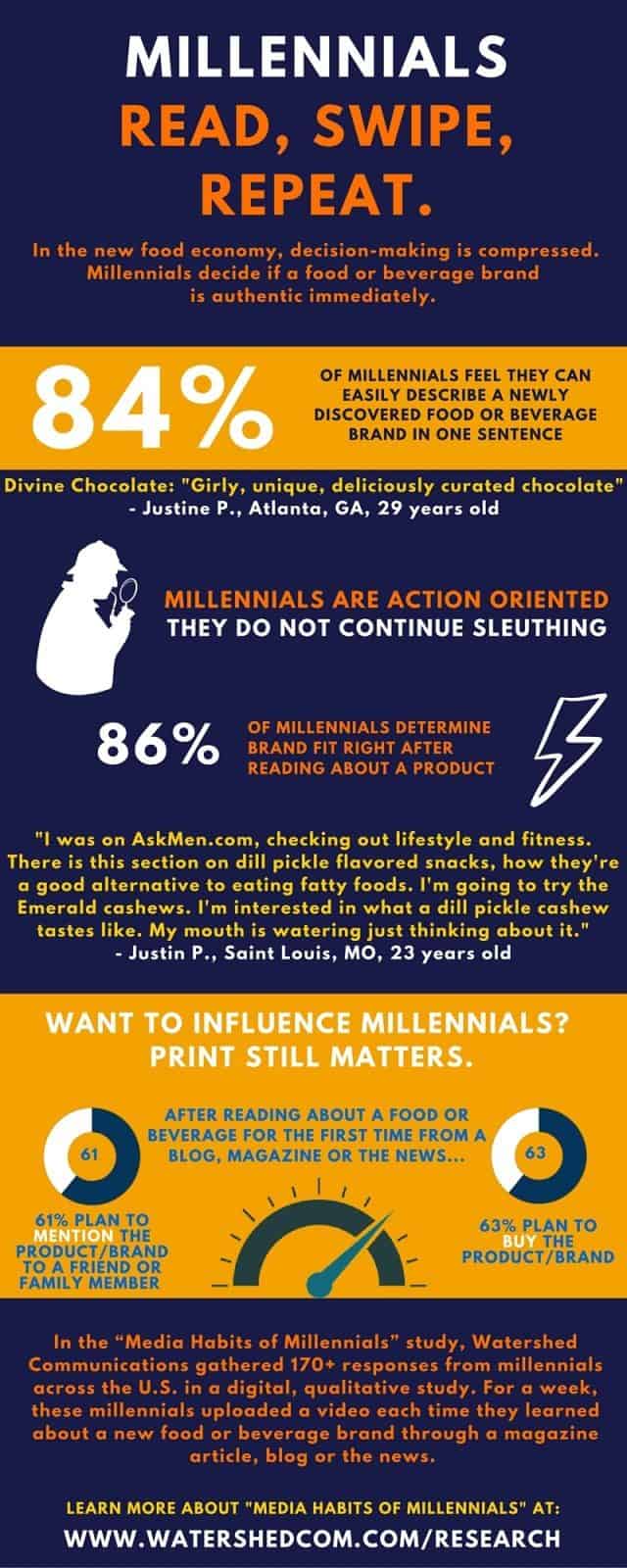New Research: Food Shopping Habits of Millennials
The food landscape is ever changing, and so does the behavior of people. Watershed Communications, a national brand strategy agency, conducted a study regarding the food shopping habits of Millennials. The participants, aged 18 to 35 years old, were asked to describe a food brand that they found authentic. They also had to answer questions related to their food shopping habits.
Millennials are considered the most highly engaged shoppers in all demographics. They are also the ones who have more shopping demands and higher capacities. With this study, companies will be able to understand the food shopping habits of Millennials so that they can apply the information in developing new products to meet their desires.
Food Shopping Habits Among Millennials Shows Branding Wins
Studies have found out that 84% of millennials can describe a particular brand or product that they have just discovered. They learn about brands by reading magazines, but they are keen on finding new brands through the internet. Once they have heard of a particular brand, 61% of millennials will share the information with their friends, family, and acquaintances while 63% plan to buy the product.
Millennials are consistent with the brands and products that they use. According to US food analyst Alexia Howard from the Stanford C. Bernstein, most millennials opt for products that are authentic, simple and consistent.

The Need for Authenticity
Millennials have a constant need for authenticity in their products. Authenticity of a brand can be difficult to define, but five characteristics determine the authenticity of a particular product as follows:
- The use of clean ingredients: Clean ingredients refer to ingredients that are real, natural, organic, and fresh. Clean ingredients are expected and demanded by millennials to ensure that safety and quality of the product that they are buying.
- High-quality products: Quality products use top-of-the-line ingredients. Quality food products should also have great flavor.
- True to its mission: Authentic brands should stay true to its mission. They should stick to their claims.
- Culturally accurate: A lot of millennials are exposed to global brands, but many of them feel that brands that honor their cultural heritage are more authentic than those that try to appeal to a market audience that are thousands of miles away from them.
- Transparent: Transparency is imperative in defining the authenticity of products. Transparency divulges the origin of the product and the processes that it has to go through before landing on your table.
Millennials make decisions instantaneously. They are also the most influential. For instance, a 35-year-old mother can make decisions for her children to purchase a particularly healthy snack or she can encourage her parents to buy a product that she has already tried and tested. It is, therefore, necessary for companies to use this information to create products and a marketing strategy to attract them.
Inspired by businesswire.com





